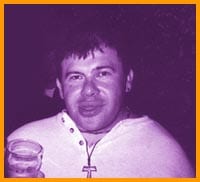After 17 months of fearing for his safety in his native Venezuela, gay William Granados will finally be allowed to return to Canada.
But first he’s got to cough up about $2,000. Among other fees, he’s got to pay for his own deportation.
“It’s the Canadian government that took his removal on itself and now he’s being asked to pay for it,” says Granados’s lawyer El Farouk Khaki.
Granados was deported in June 1999 because immigration officials didn’t accept his claim that he was a refugee on the basis of his sexual orientation. Immigrations officials doubted Granados was gay, despite his ties in the gay community through the latino group Hola, the AIDS Committee Of Toronto and the Coalition Against Homophobia. He was told to prove his homosexuality, and officials included a request for a rectal exam. Granados had one.
Even if he was a homo, officials raised doubt Granados would suffer persecution in Venezuela because of it.
Granados has argued that he is called names, harassed and assaulted because he is gay. “Every day is a nightmare,” Granados wrote in an e-mail a few months ago from Venezuela. “People have beaten me with rocks…. I am very sad and depressed.”
Ottawa has now accepted Granados back on humanitarian and compassionate grounds.
“It’s due partly to the fact that he’s been harmed since he’s been back,” says Khaki.
“There shouldn’t be any problem with William returning,” says Derick Hodgson, press secretary for Elinor Caplan, who was citizenship and immigration minister before the election. “It just points out that the system does work when it’s applied properly.”
In fact, a determination was expected more than nine months ago. As recently as six weeks ago, Khaki got an assessment from officials saying that Granados wasn’t in danger in Venezuela. After all, there are gay groups there.
“The existence of a gay group doesn’t mean he has protection in that country,” Khaki says. He filed a new statement from Granados. But Khaki says politics may have played a large a role in the change of heart.
“There was lobbying on his behalf by [Liberal MPP] George Smitherman and [Toronto Centre-Rosedale Liberal MP] Bill Graham. Political backing is always extremely helpful.”
While Hodgson says Granados will be coming back “soon,” Khaki says it’s not that easy. Granados must come up with the money to pay his fees before the wheels of bureaucracy even start turning. For example, despite Minister Caplan’s interest in the case, Granados still has to pay $400 for a minister’s permit to come back.
“Any answer as to the time frame would be purely speculative,” says Khaki.


 Why you can trust Xtra
Why you can trust Xtra


